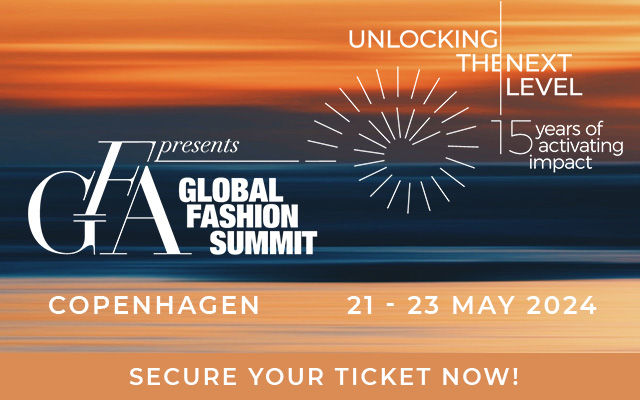It’s safe to say that the majority of sectors have been hit pretty hard during the past few months; none more so than retail and fashion. A recent report by the Sustainable Apparel Coalition stated that foot traffic in retail has dramatically reduced by 44 per cent in the US and over 50 per cent across other countries. Further up the supply chain, manufacturers have had mass cancellations of orders to cope with, resulting in the inevitable loss of jobs and the closure of factories.
The fashion industry is no stranger to criticism and many have accused the space as having been broken for a long time. As a model, ‘Fast Fashion’ has ridden the wave of economic growth in the North for over a decade; taking advantage of mass consumerism. Companies following this model are characterised by huge collections, allowing a wealth of choice for customers, frequent discounts and low quality, cheap clothing.
One of the key lessons learned from this pandemic and the lockdown of countries around the world is just how interconnected environmental issues are with the economy and social issues as well. Otherwise known as the ‘Triple Bottom Line’. Time spent in quarantine certainly forced us to reassess the meaning of ‘normality’ and to question our own daily norms. Masha Birger, of sustainability consulting firm ESG alpha said:
“The crisis has pushed us all to reassess our values, question our personal relationships, work-life balance and generally lifestyle. Take me for example: I cleaned out my closet. What remains now is a carefully curated capsule wardrobe, containing well-made classic multifunctional pieces. I am now more than ever focused on buying sustainably-made items and generally buying less, and I am not alone” said Birger. “With people all over the world demanding social, environmental and economic change, it is clear that companies in the fashion industry have to reassess their priorities and adapt to the new reality.”
The word ‘pivot’ has been frequently used by companies of all sizes to describe the process of adapting to a new way of trading. It’s mostly involved developing their ability to work online. However, many are looking for further ways of becoming more resilient and gaining a competitive advantage. Reshaping business models to be more sustainable, is an ideal way of achieving this and the fashion industry could certainly do with an overhaul.
It’s widely known now that from a marketing perspective, being able to boast environmentally friendly operations or social initiatives is certainly an advantage and builds trust with customers, both existing and potential. One such operational change commonly used, has been a rethink of the materials used to produce garments. Global brand Gucci has recently launched their first sustainable collection, ‘Off Grid’, using recycled, organic, bio-based or sustainably sourced materials like Econyl. Belarus Fashion Council have really honed in on the PR advantages by raising awareness of plastic pollution during Ethical Fashion Week.
This is certainly progress. However Birger believes that it’s not enough for fashion to become sustainable. “All stages of production should be sustainable and that includes managing waste & water, limiting GHG emissions and chemicals, protecting workers and paying them fair wages.” Any sustainability roadmap must be inclusive of social issues as well.
Forbes recently interviewed Anna Gedda, the head of sustainability at H&M Group to discuss how companies in the fast fashion space view the role of sustainability in the post-Covid world. Gedda acknowledged that the pandemic posed one of the greatest challenges the group had ever faced, one of the main issues being store closures. At the peak, 80 per cent of their stores were closed and that’s a pretty big number when you own a collective 5,000 locations globally.
Their focus remained on the safety of staff and customers whilst trying to maintain some level of revenue. Despite an upsurge of online sales, net sales declined by 50 per cent. Gedda assured that concerns always remained with their supply chain and all efforts were made to support suppliers. The challenge was to fulfil orders and continue to pay all suppliers, whilst mitigating losses. It’s certainly been a difficult time for H&M Group, despite their size but comfort can be taken from the slow but positive recovery we’re seeing on the high streets.
The same question has been thrown around a lot since lockdown occurred and that’s been whether fashion will ever be the same again. Not only have operations and company strategies been dramatically changed within a short period but customer values and expectations have been shaken up too. We’ve generally developed a more selective idea of what’s important. With such a significant upsurge of online sales, it is likely that e-commerce will continue to rise, leaving physical locations as less of a requirement. We saw that those slowest to the mark in moving online, were often the most vulnerable, including some of the ‘big hitters’. This is the reality for most industries, not just the fashion sector.

Environmental sustainability is expected to be at the core of the conversation around economic recovery from Covid and many companies are looking to become more resilient for any future events. One of the ways of achieving this is through developing a more circular business model, which often results in being mostly self-sufficient. Gedda stated her strong belief that “sustainability should be affordable” and that if successful, plenty of jobs will be created, both in retail and production/supply chains.
H&M Group have already made strides towards sustainability, using a larger proportion of sustainable materials. This includes less impactful sourcing and using recycled stocks. Their garment collection programme allows for this and there are plans to enter the rental space which has been coined to be a big part of future fashion. However, Gedda remained realistic and stated that there is still a long way to go. Any transition to a more circular model will require patience. It’s a complete rethink of how products are designed and manufactured to allow re-use and function past their end of life. An interesting suggestion from Gedda was that each product should have multiple uses also, meaning that garments can be used more with different aesthetics to appear as a new product.

The pandemic has been a catalyst for sustainable change within the fashion industry and H&M Group specifically but they were making progress before covid hit the world. One such initiative was their use of Treadler; a platform to provide access to their deeply established global supply chain, as a service to external companies. Providing this network will allow connections to be more easily built around the world to facilitate sustainable practice within the wider fashion industry. From a business perspective, this allows H&M Group to diversify their revenue stream whilst influencing and facilitating other companies to develop more sustainable supply chains.
One of the key themes of sustainable business is ‘transparency’ and the group are working hard to make real progress in providing information about how, where and by whom any of their products are made. This allows the customer to make a more informed decision and feel they’re in control of the impact they’re having on the world. Providing such transparency is integral to building trust and customer loyalty.
A really interesting development is in the use of blockchain. Earlier this year H&M group brand COS partnered with blockchain platform VeChain to enable customers to see the full history of a jumper made from recycled wool. By scanning a QR code on the garment tag, the customer saw a map, pictures and could read the story of the sweater. Gedda also discussed another brand and member of the H&M Group, Arket who’ve tried this technology as well.
When it comes to circularity, the fashion industry still remains firmly in its embryonic stages. However, the group plans to incorporate a deeply entrenched circular way of thinking into the brand ethos. Customers will be able to rent popular pieces from previous conscious exclusive collections at one of H&M’s flagship stores in Stockholm. The rental model is seen as a means of meeting the demand of customers, to whom access is more important than ownership.
It’s really positive to hear of the intentions from the H&M Group and Gedda’s enthusiasm for some truly exciting initiatives to come. It’s clear that the big hitters in the global market for fashion are taking sustainability seriously, especially as we look to recover from the economic effects of the pandemic.
This article has not been edited by Fibre2Fashion staff and is re-published with permission from synzenbe.com










Comments